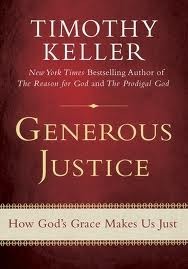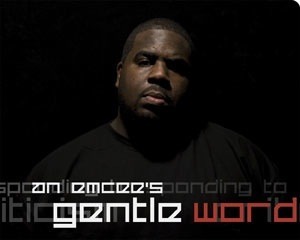Kevin DeYoung's Blog, page 198
October 27, 2010
Just Me and Jesus
Indulge me in a brief "kids say the darnedest things" story.
Last night I was playing soccer in the backyard with my two oldest sons. After stopping the ball outside the goal I threw the ball with two hands to the other side of the yard. I was trying to get it to the son playing on my team. Anyway, the ball landed, rolled a few feet all by itself, and made its way untouched directly into the goal clear over at the other fence. My five year old son came sprinting to me across the yard and made my day with his exclamation: "Wow, daddy, only you and Jesus can do that."
Are You Ready to Be a Leader?
 There are too many books on leadership, but the ones that are good can be really good. In that latter category is Spiritual Leadership by J. Oswald Sanders. I try to read it every few years.
There are too many books on leadership, but the ones that are good can be really good. In that latter category is Spiritual Leadership by J. Oswald Sanders. I try to read it every few years.
In Chapter 5 Sanders offers a series of questions–a kind of leadership audit–for leaders and potential leaders. I've included some of the questions below and numbered them for ease of reference.
1. Have you ever broken yourself of a bad habit? To lead others, one must be master of oneself.
2. Do you retain control of yourself when things go wrong? The leader who loses self-control in testing circumstances forfeits respect and loses influence. He must be calm in crisis and resilient in adversity and disappointment.
3. Do you think independently? While using to the full the thought of others, the leader cannot afford to let others do his thinking or make his decisions for him.
4. Can you handle criticism objectively and remain unmoved under it? Do you turn it to good account? The humble man can derive benefit from petty and even malicious criticism.
5. Do you possess the ability to secure discipline without having to resort to a show of authority? True leadership is an internal quality of the spirit and requires no external show of force.
6. Have you qualified for the beatitude pronounced on the peacemaker? It is much easier to keep the peace than to make peace where it has been shattered. An important function in leadership is conciliation—the ability to discover common ground between opposing viewpoints and then induce both parties to accept it.
7. Can you induce people to do happily some legitimate thing that they would not normally wish to do?
8. Can you accept opposition to your viewpoint or decision without considering it a personal affront and reacting accordingly? Leaders must expect opposition and should not be offended by it.
9. Do you find it easy to make and keep friends? Your circle of loyal friends is an index of the quality and extent of your leadership.
10. Are you unduly dependent on the praise or approval of others? Can you hold a steady course in the face of disapproval and even temporary loss of confidence?
11. Do your subordinates appear at ease in your presence? A leader should give an impression of sympathetic understanding and friendliness that will put others at ease.
12. Are you really interested in people? In people of all types and all races? Or do you entertain respect of persons? Is there hidden racial prejudice? An antisocial person is unlikely to make a good leader.
13. Do you possess tact? Can you anticipate the likely effect of a statement before you make it?
14. Do you nurse resentments, or do you readily forgive injuries done to you?
15. Are you reasonably optimistic? Pessimism is no asset to a leader.
16. Do you welcome responsibility?
17. Do other people's failures annoy us or challenge us?
18. Do you direct people or develop people?
19. Do you criticize or encourage?
20. Do you shun the problem person or seek him out?
What do you think? I find 8, 9, 10, 12, 15, and 20 particularly insightful questions. Actually, on second thought, they are all pretty insightful.
October 26, 2010
First Ever Rap on the Heidelberg Catechism
Yes, it's true. Curtis Allen (aka Voice) just released a rap on the Heidelberg Catechism. I'm proud to say the first live performance was at our church this past Sunday night.
Go here for C.J. Mahaney's write up on the background story, the song itself, and why Curtis Allen is the best.
"And this is all fact The Heidelberg Cat has been around but now it's seem like it is coming back."
Interview with Tim Keller on Generous Justice
 I'm reading through Tim Keller's new book, Generous Justice: How God's Grace Makes us Just. Keller treats his subject carefully and with the necessary nuance (be sure to read the footnotes). Just as important, his passion (and God's passion) for the poor and vulnerable comes through in a contagious way. Both those on fire for "social justice" and those suspicious of it will benefit from Keller's latest.
I'm reading through Tim Keller's new book, Generous Justice: How God's Grace Makes us Just. Keller treats his subject carefully and with the necessary nuance (be sure to read the footnotes). Just as important, his passion (and God's passion) for the poor and vulnerable comes through in a contagious way. Both those on fire for "social justice" and those suspicious of it will benefit from Keller's latest.
Tim was kind enough to take a few moments out of his busy schedule to do an interview with me. My questions are in bold and Tim's answers in regular type.
I'll start with the million dollar question, what is justice and what does it mean to do justice?
Doing justice means giving people their due. On the one hand that means restraining and punishing wrongdoers. On the other hand it means giving people what we owe them as beings in the image of God. Nick Wolterstorff says that, as a creature in the image of God, each human being comes into your presence with 'claim-rights.' That is, they have the right to not be killed or kidnapped or raped. Of course there is plenty of room for disagreement on the specifics of these things, but that's my basic definition. Doing justice, then, includes everything from law enforcement to being generous to the poor. (I believe Job 29 and 31 include generosity as part of a just life.)
You explain at the beginning of the book that you are writing for four kinds of people: those excited about doing justice, those suspicious, those who have expanded their mission to include social justice, and those who think religion poisons everything. In a sentence, what do you want to say to each group?
I hope that the 1st group gets a more sustained commitment to doing justice through growing in theological and spiritual maturity.
I hope that the 2nd group becomes aware that what Jonathan Edwards says is true, namely that there is "no command in the Bible laid down in stronger terms…than the command of giving to the poor."
I hope that the 3rd group would be more patient with warnings to not let a justice emphasis undermine a church's work of evangelism and making disciples. Careful balances have to be struck. (Whoops—that's two sentences!)
I hope that the 4th group will be able to recognize that much of their understanding of rights and justice has come from the Bible, and even to critique the church they have to use standards borrowed from Christianity.
What is one of your favorite verses that speaks to either God's heart for the needy or our call to generous justice?
I don't have just one. The entire parable of the Good Samaritan has shaped my thinking profoundly.
Why are you so passionate about this issue?
I read the Bible and I'm overwhelmed with the amount of Biblical material that expresses concern for the poor, the widow, the orphan, and the alien. My main gifting is evangelism and I've never had extensive experience in a poor community or country. So I reason—if I can see all of this in the Bible, despite the fact that I'm not especially oriented to do so—it must be important to God. I'm passionate about it because I'm passionate to be shaped by the Bible.
What do you do in your own life to pursue generous justice?
At Redeemer, we have an excellent diaconate that works with those in need within our community. In addition, years ago I helped a group of people establish "Hope For New York," a separate but closely aligned organization, that helps our church members give of their time and money to the needs of the whole city. As I say in the book, many churches who work among the poor establish a 501(c)3—often a 'community development corporation'—to do much of the direct ministry to people in need. That way the elders of the local church can concentrate on building up the flock. That fits in with Abraham Kuyper's insight that it is best for much of Christian work in society to happen through voluntary societies and associations, run by lay people. In the end, then, my main personal contribution to justice in New York City has been to establish and lead my church in a way that makes all this possible.
Any cautions you would give to Christians who are eager to transform the world or make the shalom of the city their church's mission?
I believe that making disciples and doing justice relate (not exactly) but somewhat in the same way that faith and works relate to one another. We would say that faith alone is the basis for salvation, and yet true faith will always result in good works. We must not "load in" works as if they are an equal with faith as a salvation-base, but neither can we "detach" works and say that they are optional for a believer. Similarly, I would say that the first thing I need to tell people when they come to church is "believe in Jesus," not "do justice." Why? Because first, believing in Jesus meets a more radical need and second, because if they don't believe in Jesus they won't have that gospel-motivation to do justice that I talk about in the book. So there's a priority there. On the other hand, for a church to not constantly disciple its people to "do justice" would be utterly wrong, because it is an important part of God's will. I'm calling for an 'asymmetrical balance' here. It seems to me that some churches try to "load in" doing justice as if it is equally important as believing in Jesus, but others, in fear of falling into the social gospel, do not preach or disciple their people to do justice at all. Both are wrong. A Biblical church should be highly evangelistic yet known for its commitment to the poor of the city.
I think you're at least a little familiar with some of things I've said and written about social justice and the mission of the church. Any cautions or corrections for me?
I must confess I don't read your blog religiously. However, I look at it fairly often and I'm always impressed with your thoughtfulness. Here's one thought. When you say, "the church's mission is to make disciples, not change the culture," on one level I'd agree with you, as you can see by my answers under #5 and #6 above. However, you have to disciple people to follow Christ not only inside the church but outside in the world. For example, when a Christian actor asks "what roles can I take as a Christian—and what roles should I turn down?" or when a hedge fund manager asks: "can a Christian do short selling?"—these are discipleship questions. If you disciple people to bring their faith to bear on all of life, you will be equipping them to do justice and also, inevitably, "do culture-making". I'm pretty sure you'd agree with me here. I'm only proposing that, when you say, "we must make disciples, not do justice or engage culture" you might give the impression that disciples simply do evangelism, follow-up, and recruiting people into the church. But disciples do more than that.
October 25, 2010
Monday Morning Humor
October 23, 2010
Nobody is Listening to Me
I disagree with several aspects of Jurgen Moltmann's theology, but I appreciated this analogy from him where he warns against the danger of analyzing the Bible in such a way that we no longer pay attention what God wants to say.
I imagine that I step behind the pulpit in a church and preach in order to proclaim the Gospel and, if possible, awaken the faith. But those who sit in the pew don't listen to my words. A historian is there who examines critically facts about which I am speaking; a psychologist is there who analyzes my psyche which reveals itself in my speech; a cultural anthropologist is there who observes my personal style; a sociologist is there who is identifying the class to which I belong and as whose representative he believes I am functioning. Everybody is analyzing me and my context, but nobody is listening to what I want to say. And the worst thing is: nobody is disagreeing with me, nobody wants to discuss with me what I have just said.
October 22, 2010
Making All of Lansing Proud
The Crust and the Core Redux
 It's been a busy week. Something had to give. Right now it's blogging. But I thought I'd mention two things.
It's been a busy week. Something had to give. Right now it's blogging. But I thought I'd mention two things.
First, if you are in the Grand Rapids area you may want to check out this Young and Reformed conference tonight and tomorrow morning (October 22-23). Speakers include Mike Wittmer, David Murray, and me.
Second, I thought it might not be a complete waste of your time to check out this "classic" from ye olde blog archives.
*******
If we are to be fruitful and godly Christians we need to have a theological core without being theologically crusty.
In desiring a theological core I don't mean that all Christians must be bookish and given to intellectual contemplation. I mean that every Christian must be shaped from the inside out by a set of convictions about who God is and what he has accomplished in Jesus Christ. As Christians we should be animated (given life) and motivated (compelled to action) by a core of doctrinal truths–truths like God is loving, sovereign, and holy; God created the world and created it good; as a result of Adam's sin humans are bent toward evil; Jesus Christ was God's Son, begotten not created; Jesus suffered and died on the cross for sins and rose again on the third day; the Holy Spirit is God and fills us with power, enables us to believe, equips us with gifts, and bears fruit in our lives; the Bible is God's word; Jesus is coming again to judge the living and the dead, and justification is by faith alone.
These truths need to be more than a set of beliefs we assume. They should be the lens through which we look at ourselves and the world. There are many Christians and churches that don't deny any cardinal doctrine of Christian faith, but they still don't have a theological core. They have, instead, a musty statement of faith they barely understand and hardly believe and wouldn't dare preach. They are animated and motivated by politics, church growth, relational concerns and the like, but the gospel is merely assumed. "Yes, yes–of course we believe in the Virgin Birth, and the atonement, and the resurrection, and heaven and hell," they say. But its all periphery, not core. It's all assumed, not all-consuming. Theologically hollow congregations and pastors may like to think they will bequeath a gospel legacy to the next generation, but the truth is we only pass on what is our passion. New converts and new kids won't think and live and love like mature Christians, let alone be able to articulate the Christian story, if our beliefs rest in a pamphlet and not in our hearts.
I make no apologies for having a theological church. The church ought to be about the business of the gospel, and the gospel is a message of historical fact plus God-given interpretation. That's theology. I hope we never feel like we have the "theology thing" down at URC just because we have solid book studies and long, meaty sermons. The "theology thing" is a lifelong project of being transformed by the renewing of our minds. We want to be thinking Christians who know what we believe, why we believe it, and live and die in the comfort of these beliefs.
Having a theological core means, among other thing, that our unity is theological. Of course we want to be united in love and purpose too. But whatever actions and affections we share in unison ought to radiate from a theological core. There is so much talk around the broader church about being missional Christians that it's easy to think the church should be missional-centric. And in one sense, mission is certainly at the center of what we do. But mission itself is not what ties us together or fires us up. It's only when the mission is defined and it's genesis is proclaimed that we can rally around mission.
What I mean is that we should be, first of all, Christocentric; that is, centered on the cross of Christ. Christ is our identity, our passion, and our hope. And because of this identity, passion, and hope we pray, and evangelize, and do missions. But missions is not the center. Christ is–which shapes, defines, and launches us into mission. It's like John Piper's famous line: "Mission is not the ultimate goal of the church. Worship is." Being missional is not a sufficient basis for unity. One, because I'm never quite sure what missional means. Two, because the blazing hot center of Christian identity, passion, and hope is not that we are all doing things in Jesus name. Of course, we should be doing things in Jesus' name. But the blazing hot center is what God has already done for us in Christ. This must always be explained and rejoiced in, not merely assumed.
Which brings me back to the main point. We desperately need Christians and pastors and missionaries and churches and denominations and movements and institutions which are theological to the core, where doctrines are not simply items to be checked off the dogmatic grocery list or statements to be dusted off out of the ecclesiastical attic. We must all be theological because being a Christians means we embrace a message about who Jesus is and the victory he won for us. And that's theology.
So, core, yes. Crust? No.
Please, don't skip the last part of this post, especially if you really liked the first part. Because you may just be a crusty Christian if you're not careful.
What makes a Christian crusty? A number of things. For starters, it's an attitude. It's a demeanor where being Calvinist or paedobaptist or inerrantist (three things I am gladly) are put on like armor or wielded like weapons, when they are meant to be the warm glow of a Christian whose core radiates with love for Christ and the gospel. I believe in theological distinctives–I believe in them and I believe it is good to have them–but if the distinctives are not manifestly the flower of gospel root, the buds aren't worth the blooming.
A second mark of crusty Christians is approachability, as in, not having any. There is a sizing up-ness that makes some theological types unnecessarily prickly. They are bright and opinionated and quickly analytical. As a result, knowingly or unknowingly, they emit a vibe which communicates something between "You Max Lucado reading moron!" and "I wish R.C. Sproul were here to teach you a thing or two!" Crusty Christians are hard to be around. They are intimidating instead of engaging and growling instead of gracious. They are too willing to share their opinions on everything and unable to put any doctrine in any category not marked "absolutely essential."
When theology is more crust than core, it's not so much that we care about good theology too much, we just don't care about some other hugely important things in the same proportion. So we end up largely skeptical of a prayerful, fruitful, warm-hearted, godly, Arminian leaning pastor. Now, I might think such a pastor is prayerful, fruitful, warm-hearted and godly despite too much emphasis on libertarian free will, but I sure hope to be mighty thankful for all his prayerfulness, fruitfulness, and warm-hearted godliness. Some Christians allow evangelism to trump all other considerations, others size up fellow Christians by their attention to social justice concerns, but a lot of us do our judging with theology. If the theology fits, the lack of mission, prayer, and compassion doesn't matter much. But if a few theological pieces are misplaced in the puzzle, see you later and don't let Hymenaeus and Philetus door hit you on the way out.
Striking the balance is not easy. But let's try hard to be discerning and grounded without always looking for the next theological misstep in our friends, our family, or the songs we sing. And let's be able to tell the difference between wandering sheep and false teachers. We must delineate between a slightly ill-informed wording of a phrase and a purposeful rejection of truth. We must pursue a passion for fidelity to Scripture and a winsomeness that sweetens the already honey-like drippings of the word of God. Let us be more like a chocolate covered raisin, likeable on the outside and surprisingly good for you on the inside, and less like a tootsie roll pop with its brittle, crunchy exterior that must be broken through before anyone can get to the good stuff. Our theological heart, if it is worth anything, will pulse throughout our spiritual bodies, making us into someone more prayerful, more godly, and more passionate about the Bible, the lost, and the world around us. We will be theologically solid to the core, without the unnecessary crust.
October 21, 2010
Curtis Allen at URC
Curtis Allen (aka Voice) is going to be leading the 6:00 evening service at University Reformed Church on Sunday, October 24th.
Here's the announcement running in our church bulletin:
Curtis Allen is a talented rap musician and pastor who joined Covenant Life Church in 2001. At first he tried to forget  about rap because it lured him toward his old life of violence and crime. But Curtis was on his own "progression" in godliness. At the invitation of Joshua Harris, Curtis performed "You Have Captured Me" for 3,500 young singles at New Attitude 2004. Since then he's performed at other Sovereign Grace conferences and in a variety of concert settings.
about rap because it lured him toward his old life of violence and crime. But Curtis was on his own "progression" in godliness. At the invitation of Joshua Harris, Curtis performed "You Have Captured Me" for 3,500 young singles at New Attitude 2004. Since then he's performed at other Sovereign Grace conferences and in a variety of concert settings.
Curtis will join us at URC to share his testimony, preach and rap. If you're in the area, join us this Sunday evening at 6:00pm at University Reformed Church, 4930 S. Hagadorn Rd., East Lansing, MI.
It's Okay to Pass This Test
 You may have heard these words in a sermon. Maybe you've handed them off to others. Perhaps they've rung a spiritual alarm in your heart. They come from the Apostle Paul in 2 Corinthians 13:5: "Examine yourselves, to see whether you are in the faith."
You may have heard these words in a sermon. Maybe you've handed them off to others. Perhaps they've rung a spiritual alarm in your heart. They come from the Apostle Paul in 2 Corinthians 13:5: "Examine yourselves, to see whether you are in the faith."
This exhortation is often used to motivate careful self-examination–to see if we really believe in Christ, to see if we are actually walking with the Lord, to test if we are genuine disciples or phony hypocrites.
And there is a time for this kind of self-examination. The Sermon on the Mount (the end of chapter 7 especially), the woes on the Pharisees (Matt. 23), and the seven letters of Revelation (Rev. 2-3) come to mind. But self-examination becomes a problem when we don't believe were allowed to pass the exam. Some Christians turn introspection into annihilation. And some of our heroes don't always help. There is a strand in some Puritan divines–and I love those dead guys as much as anyone –that so delineates all the sins on our sinny sin sins that we scarcely feel it possible to call ourselves Christian. Pound away with the law, but don't hammer out the faith.
The thing we often miss with 2 Corinthians 13:5 is that Paul expects the Corinthians to pass the test. He is writing to defend his apostleship, and the chief ground for his defense is the Corinthians themselves. They want proof that Christ is speaking through weak little Paul (v. 3). He offers their lives as proof. The Corinthians ought to test themselves to see whether they are in the faith because Paul knows Jesus Christ is them, so they will not fail the test (v. 5b). Consequently, Paul will not fail their test (v. 6).
So go ahead and encourage one another to examine the heart. Let's be honest and see if we are in the faith. Let's test whether or not Christ is in us. But as we put our "in-Christness" to the test let's not forget it's okay to give ourselves a passing grade. To God be the glory.




